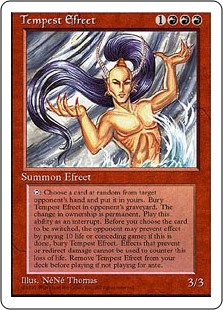In such a situation, you are not the owner of the card - although you may control it - and you could not become owner of that card in no legal way.
The "owner" of a card is, generally and according to the rules, "the player who starts the game with that card in his deck" - as established by rule 108.3, although with one important exception, which I will discuss later.
He is therefore the owner of that card because that card simply "belongs" to him, since he probably bought it previously, or obtained it through an exchange between players.
The "controller" of a given card is instead who, during the game, actually controlling it; because, firstly, the general rules and those written on the cards give him control of that card , which at this point can be either a spell still on the stack, or a permanent on the battlefield.
I remember that,in old MTG times (in 90's), it was possible to become owner - not controller only - of a target opponent's card. But it was possible only announcing you are playing with ante before start playing. Then, you are allowed to become owner of a card when some kind of card expressely told you this.It happened with old black cards like Contract from below, or Darkpact;with the red 3/3 creature Tempest Efreet or with others dealing with ante's or with opponent cards,such as Bronze Tablet.
The exception I mentioned earlier would apply exactly in these cases. I'll explain better.
If a player starts the game with a given card in the deck - and is therefore the "owner" of it, according to rule 108.3 - but then one of the just introduced cards (Tempest Efreet,for example) comes to change the situation (and therefore this means that the two players are playing with the ante) then the card owner can change during the game itself.
Therefore, at this point the "owner" - and then we call him rather the "new owner" - is no longer who started playing with that card in the deck, but rather the "new owner" , since in the meantime the card has changed "owner": this means that it must be taken into account not by the "first owner", but the "new owner" instead , when the word "owner" should reappear on other cards during the same game.
In these cases it is always good to give an example, to better clarify the scope of the exception to rule 108.3: that is, the rules for playing with the ante, established by rule 407, which is also referred to by rule 108.3, at the end:- "... except for the rules for ante (See rule 407).".
Player 1 has a Tempest Efreet on the battlefield, and decides to use his ability (see the card,for details).

He then chooses a random card from player 2's hand, and it is a creature: for example, a Serra Angel.
At this point, the “owner” of the Serra Angel is no longer player 2, but player 1.
During the game, player 1 brought Serra Angel into play; then, player 2, to improve his situation, decides to use Eldrazi Displacer's ability to exile the Serra Angel, and then put it back into play under the control of "its owner", apparently removing it from player 1.
But this is where the exception must be taken into account in its important effect.
The player who started the game with Serra Angel is in fact player 2, and therefore, taking the text of the rule 108.3 (to the letter), the Serra Angel should return to the battlefield of player 2.
However, in the meantime the “owner” of the Serra Angel has changed,due to the ability of the Tempest Efreet; therefore, whenever the word "owner" appears on the various cards, it must be understood in the sense of the "new owner", who is now precisely player 1 and not player 2,as regards to Serra Angel.
So, in this case, the use of Eldrazi Displacer's ability would bring the Serra Angel back under the control of player 1 - since this last is the “new owner” of this card - and the action taken would essentially be of little use in improving the game of player 2.
However the game ends, player 1 eventually leaves, but with one more Serra Angel in his deck, and one less Tempest Efreet, which instead goes into player 2's deck,too. This is because the "owners" of these cards have changed during the game.
